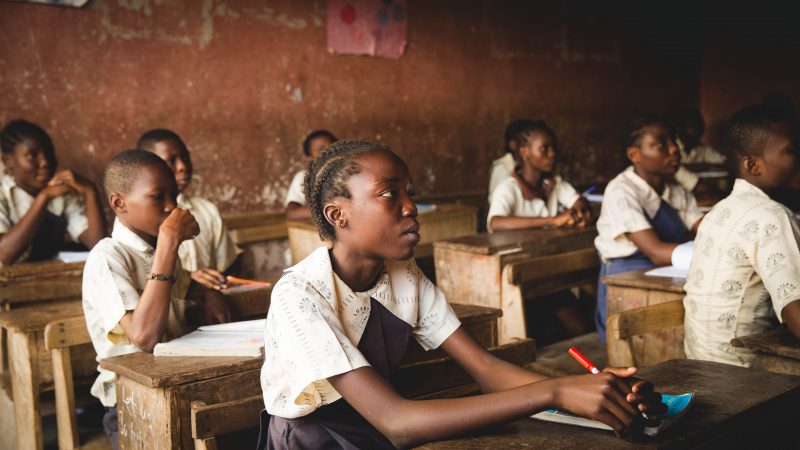BY BILAL CHAUDHARY
Stimulating domestic innovation is crucial for developing countries. Innovation, creativity, and out-of-the-box thinking can accelerate the pace of poor countries’ development, reducing their reliance on aid and enhancing their capacity to participate in a rapidly changing global economy. For development to succeed, innovation cannot be solely the domain of the rich and affluent.
But the buzz around innovation is useless without effective education policies.
The key to innovation—and therefore a crucial driver of development—is a focus on primary and secondary education. After having lived in a developing country for most of life, I have come to the conclusion that over-emphasizing higher education at the expense of primary education does not lead to the desired results. Rather, it creates a brain drain problem as the individuals with professional degrees move to friendlier ecosystems in which to apply their skills, usually in the developed world. A recent report in the UK’s leading daily revealed that 30% of Africa’s university-trained professionals, and over 50,000 Ph.D.’s, live and work outside the continent. The situation is not very different in other developing regions, such as South Asia, where governments bear significant sunk costs due to the loss of skilled human resources.
This persistent problem calls for re-prioritizing primary and secondary education because innovation is not just about scientists working in the laboratory or engineers working in technology firms; it’s also about a child from a poor family questioning established dogma, or a farmer discovering new techniques to till the land.
In the U.S., which ranks among the top five in the Global Innovation Index (GII), it is not just schools like Harvard, MIT, and Stanford that make the country a leader in innovation. The country’s primary and secondary education systems also play a crucial role. The strong foundation at the base of its education pyramid lends incredible, albeit less visible, support to the national innovation ecosystem. Even those who do not make it to college take courses that strengthen their capacity to absorb new concepts and to adapt to new technologies. For developing countries, the role of primary and secondary education is even more crucial: strong primary and secondary education systems can re-shape fundamental social and economic systems, and can set the stage for adaptation and innovation at the local level.
According to the World Bank’s global statistics, “the [per] unit cost of higher education is about 60 times higher than that of primary education.” While it is generally believed that the public sector’s investment in higher education has a higher rate of return than its investment in primary education, these returns are often enjoyed by other countries where individuals with more education choose to live. This dilemma has prompted the World Bank and other donors to come up with policy prescriptions that call for prioritizing primary education over higher education, especially in sub-Saharan Africa.
But even within primary education, developing countries and donors have focused on the wrong goals. Too narrow a focus on enrollment threatens an important emphasis on quality. A quality education is what helps to develop critical thinking skills in children at an early age. Quality-based goals have different policy prescriptions. They require more intensive training for primary school teachers, as well as concerted efforts to attract more talented individuals toward teaching.
Secondary education cannot be forgotten either; a strong blue-collar work force drives entrepreneurship. The experience of post-war Europe, and that of the Asian countries that successfully sailed through initial phases of economic development during the 1980s, indicates that secondary education was more relevant in their progress than was higher education. At the end of World War II, England, France, and Italy embarked on an unprecedented drive for mass secondary education. This created a large, highly talented pool of students. Some of these students entered universities, while the others supported their research and development work with the skillsets they acquired in secondary schools.
In addition to reforming education policies, governments can facilitate innovation by supporting entrepreneurship and start-ups. The more a society values and honors entrepreneurs, the greater the number of bright and ambitious young people consider entrepreneurship and embrace the risk of establishing new businesses. These entrepreneurs can be the catalysts for change in developing countries in the long run.
South Korea provides the most successful example of a country that has followed this bottom-up approach to reform in the education sector. Devastated by the Korean war, the country started to rebuild during the 1960s, with a strong emphasis on primary education in its first two five-year plans. Moving forward, South Korea also embraced secondary education as part of a reform agenda. Eventually, during the 1980s, the country’s industrial strategy moved from imitation to innovation—shifting from the mere copying of foreign technology to the development of novel technology domestically—and, during this change, higher education started to feature more prominently into the government’s plans. This gradual, systematic approach paid immense dividends. Today, South Korea is ranked above Germany, Japan, Switzerland, and Sweden in Bloomberg’s GII.
The challenge for developing countries in following the Korean model is in giving up short-term economic returns and quick-fix solutions, such as maintaining high rates of primary school attendance in order to qualify for foreign aid, in favor of more long-term, sustainable gains. This requires patient capital and long-term investments aimed at developing primary and secondary education systems. These investments might not show results for decades—but they would nonetheless give those living in developing countries a sense of hope for a better future.

Photo Credit: Doug Linstedt via Unsplash
Edited by Parker White
